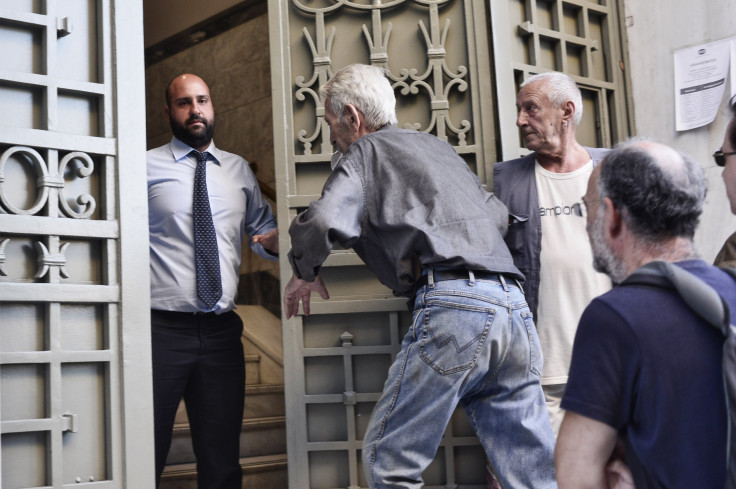Greek Debt Crisis 2015: Greek Banks Reopen Amidst Financial Uncertainty

For the first time in three weeks, banks in Greece opened their doors Monday. The move followed Prime Minister Alexis Tsipras' acceptance of a new bailout package from the European Union that allowed for additional aid money of $94 billion in exchange for added austerity measures.
Those austerity measures include budget cuts, reduced pensions and lower spending on social programs. Capital controls, such as a 60-euro ($65) limit on withdrawals, were expected to remain in place, but customers were allowed to withdraw as much as 420 euros for the week. Citizens also were limited to withdrawals of 120 euros per week from their pensions.
The reopening of the banks was especially important for the elderly, who typically do not have access to online banking and could not access their accounts. Greek bank customers also were expected to regain access to their safe deposit boxes.
The Greek stock exchange, which closed June 29, remained closed, and a ban on all international transfers remained in place, Financial Times reported. This ban has been particularly crippling for businesses and tourism industries that rely on international transfers to survive.
"Capital controls and restrictions on withdrawals will remain in place but we are entering a new stage, which we all hope will be one of normality," said Louka Katseli, head of Greece's banking association, as Reuters reported. Many banks anticipate long lines and waiting times.
Some Greeks saw the reopening of the banks as a symbol of normalcy in an uncertain time. After Tsipras accepted the most recent bailout deal -- which included the strictest austerity measures to date -- rebellion broke out among members of his own party, Syriza, and led to a purging of dissidents from his Cabinet. Another vote concerning added austerity measures is set to take place Wednesday, and many fear it could lead to even greater tensions in the Syriza party.
© Copyright IBTimes 2024. All rights reserved.





















